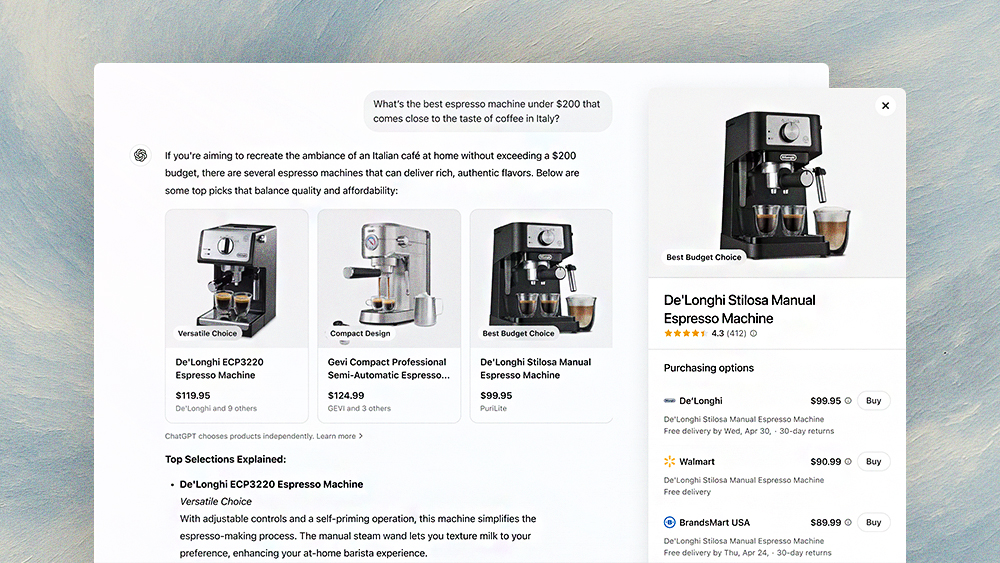
Credit: openai.com (edited)
Conversational AI is rewriting the rules of web discovery, shifting users from passively receiving Google-fed results to actively asking for exactly what they need. OpenAI is placing a major bet on this shift with new shopping features in ChatGPT, but its bid to carve out a space in conversational commerce hinges entirely on whether users can trust the AI's answers.
Conversational shopping arrives: OpenAI announced Monday it began rolling out enhanced shopping capabilities within ChatGPT search, aiming to make finding and comparing products more intuitive. Available globally for users of its GPT-4o model—including free, paid, and logged-out users—the update presents product results in visual carousels, complete with images, pricing, review summaries, and direct links to merchant sites, according to company statements. Users can ask specific, natural language questions, like searching for dog costumes or espresso machines within a certain budget, and receive tailored recommendations.
How it works (and doesn't): The system selects products based on user intent inferred from the query, context like chat history (using its Memory feature for Plus/Pro users outside certain regions), and factors like price and customer ratings, OpenAI detailed in a help document. However, the descriptions, labels like "Budget-friendly," and review summaries are often generated by the AI based on third-party data and are explicitly not verified by OpenAI. The company notes the AI can misinterpret intent and recommends users verify product suitability themselves.
The trust deficit: This reliance on external data feeds and AI interpretation introduces significant potential for inaccuracies—a critical hurdle for building user trust. OpenAI’s documentation cautions that pricing, drawn from third-party providers, may be delayed or inaccurate, potentially not reflecting the lowest available price, and that aggregated ratings might not match any single retail site. A demonstration reported by The Verge highlighted this risk: while ChatGPT successfully recommended espresso machines, it stumbled when asked about preorders for the unreleased Nintendo Switch 2, pointing to questionable third-party listings and inaccurately stating Nintendo's own store had sold out when sales hadn't begun.
Eyeing Google's turf: The move positions ChatGPT as a direct challenger to Google's dominance in product search, offering a potentially cleaner, conversational alternative to Google's often ad-cluttered results. OpenAI emphasizes that its shopping results are chosen independently and are "not ads," a key differentiator highlighted by TechCrunch. With OpenAI reporting over 1 billion web searches conducted via ChatGPT in the past week alone, the platform is rapidly gaining traction as an information discovery tool. From a retailer's perspective, paying Google's toll at least offered some degree of control and predictability for brands. But a more semantically ambiguous AI chat experience could prove harder to control and manage from a CX perspective if exact expectations are not met, or expected promises not delivered upon.
Ad-free for now?: While OpenAI currently states it receives no commissions from purchases made via ChatGPT links, questions linger about long-term monetization. TechCrunch previously reported CEO Sam Altman expressing openness to "tasteful" advertising, potentially through affiliate fees for purchases initiated via the chatbot, provided OpenAI doesn't sell priority placement. OpenAI is also exploring ways for merchants to provide product feeds directly, potentially paving the way for future commercial partnerships beyond the current reliance on third-party data aggregators.